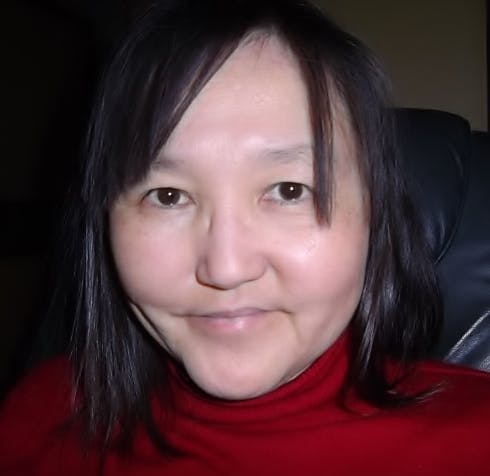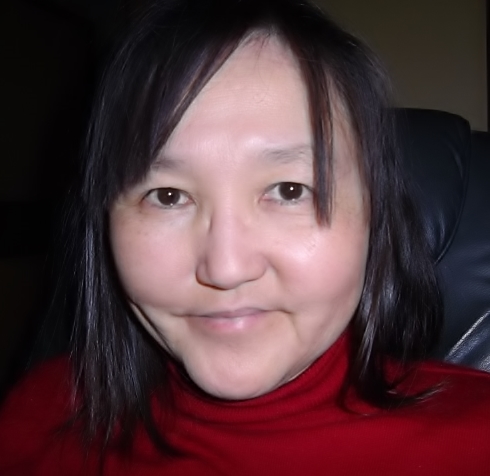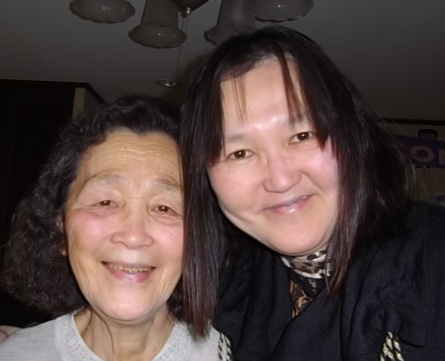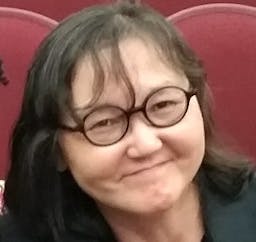Domestic Violence in Childhood: How the Devil is Reproduced and Repeated
Jan 21, 2015
Story




What do you do if you face a series of domestic violence as a child and later on see the similar patterns in your adulthood? Will you be able to disclose all that hurts? In the past, I tried to confide with my friends, but could not only because it was like taking risks—allowing myself exposed to rejections and judgment, and pain added to the pain already existed over the years--but also being a fragile and not equipped enough to defend myself.
At the age of 52, I finally start seeing some links between the experiences of domestic violence in childhood and that of adulthood—in short, the domestic violence in childhood have ruined most close relationships later on in my life. So what are the relations between the violence in the childhood and life in adulthood? How to overcome it? Repeated patterns of domestic violence may be boiled down to very basic questions: Were you (victim) protected when you were under attacks? Was there anyone in family who defended you when you were sick or defenseless? If you didn’t have anyone protecting you as a child, you are likely disabled to know how to defend yourself as well as defend others when you grow up. In sum, the end product of domestic violence in childhood is an emotional disability.
Let me outline my own experience as a victim of domestic violence. When I was seven-teen years old, one day my father introduced a new religion to the family. I did not join the religion while the rest of my family members accepted it. As a teen I felt that I should decide myself what religion is suitable for me. The reaction of my father, a scholar and a preacher who was known in Japan and U.S., and being fluent in Latin and translated numerous religious and linguistic books, was violent. The rest of the story was very painful. My father wanted me no longer stay home again because I refused to get involved in his religion; looking back, I still do not know his honest thoughts. What if I accepted it? I would have very different life now; probably my life would have been steady in Japan. Though I don’t know what my mental state would be. I knew the very bitter taste of intense criticism, anxiety, and frustration while I stayed with my father even long before.
My father was vigorous and diligent writer but made our home constant battle field where he frequently attacked us verbally and physically. Even the way the chopsticks arranged at the dinner table was good enough reason for bombast accusation that ruined family meal. Consequently, no one ever spoke against him at home, except for me. I was defiant at home. Mainly because his attacks continued whether I agree or disagree with him. It was as if nothing I did was good enough. But the rest of the family members—my mother and two sisters--did not speak out. They used to submit to him. The evils emerged through the preacher’s family of five, with constant mental battles like madness. I began developing serious stomachache daily vomiting after eating. Doctor said the cause of stomachache was “intense stress” but no one knew what to do. The low esteem developed seemed never to settle me comfortably with others. My father, being a respected in society, on the other hand, had easily dismissed my cry against his injustice. He used to claim that I was always “ineffective” and “irreverent”. It was significant that my sister, who is 2 years younger than me, developed schizophrenia only by being observant to the day to day battles. I say, it was a case of scape-goatism.
At the age of 18, I left home for Tokyo where I delivered newspaper and got scholarships to study at Tama Art University. Then I headed to California in the United States. Living in the United States without my family gave me a chance to forget the past and start personally developing myself—it was a time of healing. Interacting with people with different language and social background was not a gap to endure than the battles endured with my family. I landed on jobs as Japanese language teacher, food server and painter. I also enrolled and graduated Sociology and Communication courses at the University of Nevada, Las Vegas. Then I developed a company to paint interior/exterior murals at schools, restaurants, and private homes, as well as created training program for tourism and hotel customer services to assist international guests which lead me also to teach in community colleges and university extensions.
It was 24 years later finally I went back to see my family in Japan and spoke to my father. He was sick in bed. He was a thin man with a full gray hair hardly was recognizable from the day I left home at the age of 18. We had exchanged a few short conversations. He said “Sorry for what happened.” I said “That is OK.” It was neither hostile nor emotional. My mother used to tell me that “Your father was an orphan during the World War II and adopted by a German preacher, and used to be beaten brutally. He does not know how to express his emotions.” My father, who was then a university lecturer, lectured us at dinner table and even in bed with untouchable, exacting, and non-emotional manner. Soon he asked me to leave the house despite that I came back to see him from abroad after years of absence.
Then in 2006, I took the opportunity to a partnership of a non-profit organization in India and Nigeria. Meantime I was notified that my father passed away. I felt a relief—that the battle was over—and empty feeling for a loss, like a stranger. I could not cry. I felt guilty for feeling so numb because I never really was emotionally close to him. He was the very reason that I could not feel safe at home in Japan. He was the very reason I stayed in a foreign country for nearly 20 years.
Looking back, though the battle was not really over—I never seemed to express my emotion appropriately—like him. I had unexpressed anger within myself and equally strong fear for intimacy that kept my potential marriage partners away from me so that I won’t get hurt. My relationships usually went like this--times for awakening passion, prolonged heat of moments and unmistakable end—just like flowers blooming and withering during a season. And there were complaints that I did not love them. In case of the Nigerian fiancé, I took notice the continuous patterns that made me and my partner unhappy. Apart from the violence he committed against me, I could not tell the difference between abusive and loving expressions of my partner—and again the lack of my ability to be in touch with the very heart of the person. There were no “sharing,” “belongings” or “oneness”—while my heart was desperately seeking for it. The relation came to the dead-end where nothing can bring the relationship further than judging, and to be judged. I was always happy when my partner was away. My father was the same way. He did not want anyone around him. It was an invisible disability no one noticed and pointed out.
In 2012 I formed an organization called, Support Women and Children in Nigeria, or SWACIN Inc. This organization was created immediately after I returned to Japan. While operating non-profit organization, I love the every minute of work. Interestingly, I found those who go through similar pains I have gone through. When I accidentally helped Nigerians in prison, I found a common ground with them. Many Nigerians diaspora were criminalized in foreign countries without safety and comfort at home. In their own home land, the government continuously outwits the international community to get away with its loot reserved for the poor, creating the reasons to drive them away from home to the outside countries. I am very familiar with these phenomena in my own life. As I recall, my father continuously outwit the social norm with his elite identity to take away justice, which was reserved for me, and drove me away from home.
Thus, the passions—almost obsessive—to rescue Nigerians’ stigma is not my deliberate effort but the natural means to rescue myself. Take note that all this passion has nothing to do with the romantic endeavor, but the mental map that were built into me wrote such scenario unconsciously--The work I do is a personal resolution to repair my childhood.
After total 30 years of absence from my home in Japan, I now live with my mother at home peacefully at last--after my father’s death. I am blessed with numerous international friends, especially in Nigeria. Despite the police or government were incapable of rescuing me, those were the number of local women who helped me out of the violent Nigerian fiancé. I still have no intimate marriage partner, but I am just happy as I am no longer living on the verge of threats, fears, and endless criticism because the devil I fought internally and externally ceased to exist—at least for now. Those who encountered domestic violence as children need counseling in a non-judgmental setting, where they can talk about emotional issues freely. They need mental work-out to build trust with others, and need assurance that someone can defend them. Having someone who really care has the tremendous impact in one’s life. Such assurance helps them to do the same to others—and overcome oneself from an emotional wreck.
--As a Voices of Our Future Correspondent, I regret for those who expected me to depict all intricacy of taking leadership in Japanese community. Realistically speaking, I do not know how to represent people in Japan and help Japanese women. As a person driven away from home feeling unsafe at home and stayed in the United States many years, I am still trying to narrow down the gaps as I came back.
Though, having even one person understands my situation, gives me enormous comfort and empowerment. So do any persons. Thus, I suggest that we continue empowering and encouraging one another by sharing.




